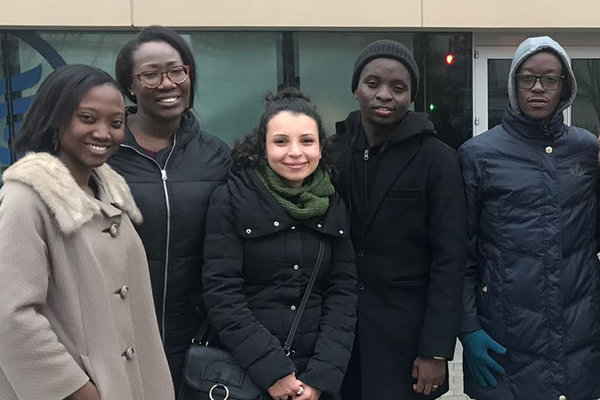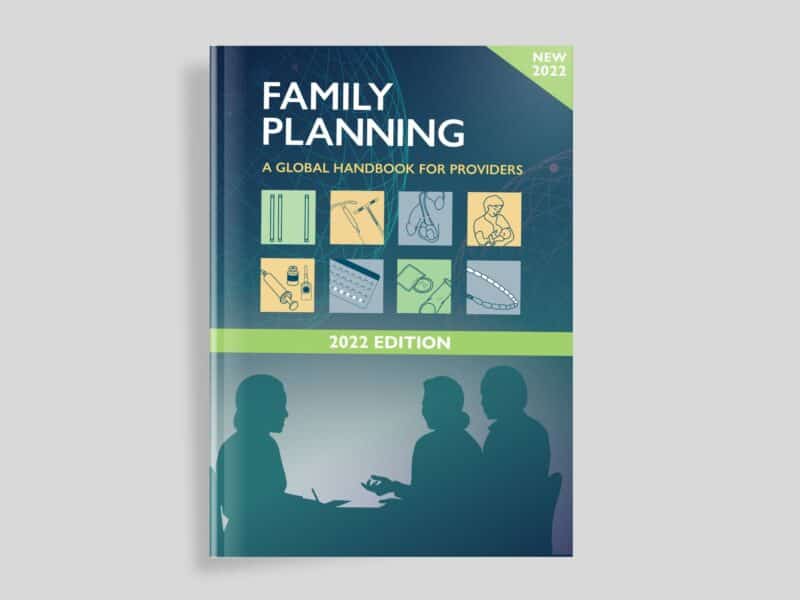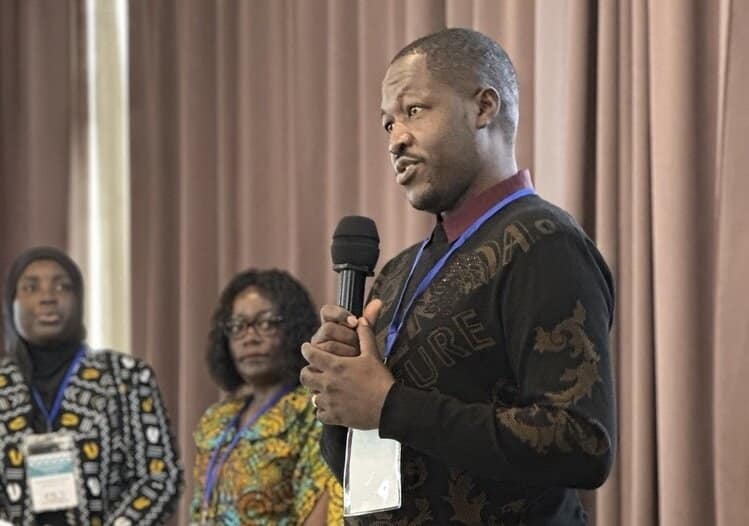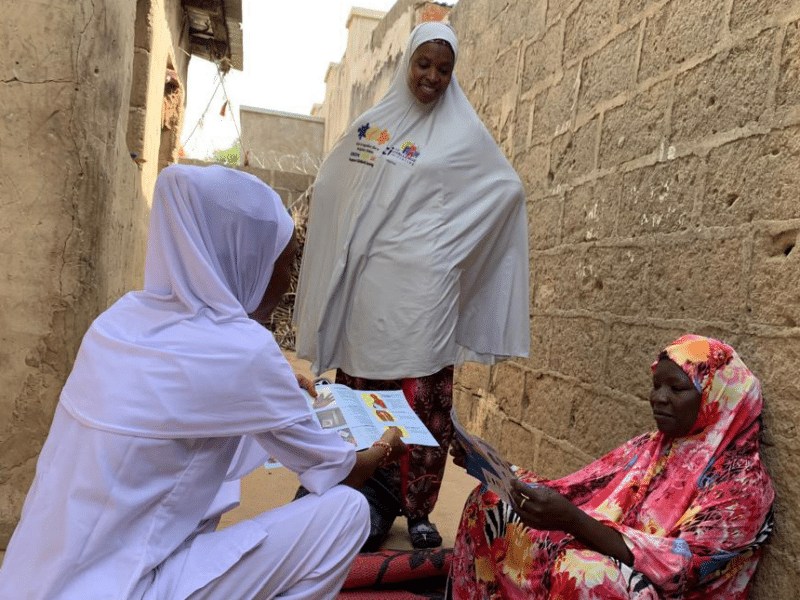Demographics tell us that there are about 1.8 billion people in the world between the ages of 10 and 24 – the largest youth population ever. Many of them are concentrated in developing countries. In 2015, according to the United Nations, there were 226 million people ages 15-24 in Africa. By 2030, that number is expected to grow by 42 percent.
Given these staggering statistics, health programming needs to have a special focus on young people, making sure they have with the most accurate and relevant information about HIV prevention, modern contraceptive methods and gender equality and empowerment.
Recently, a group of young leaders from around the world stopped by the Johns Hopkins Center for Communication Programs in Baltimore to talk about what they are doing to help educate their peers about sexual and reproductive health in their countries. They inspired us with their enthusiasm, with their use of new technology, with their commitment to making sure every young person has the tools they need to adopt healthy behaviors, even in places where talk of sexual health is considered taboo.
Margaret Bolaji is the youth programming advisor for CCP’s Nigeria Urban Reproductive Health Initiative (NURHI) 2. In Nigeria, more than 32 percent of the population are between the ages of 15 and 24 – that’s 60 million people. For too long, she says, adolescent girls have been lumped together with all women when it comes to sexual and reproductive health programs. Now, NURHI 2 is working to create specific programming for youth – and including them in the planning process.
“It’s about young people taking ownership,” she says. “You’re empowering them to do what they need to do and helping them to solve their problems.”
Kizanne James is a World Contraception Day Ambassador who works throughout Latin America and the Caribbean and is the founder of Access Sex Health, a global enterprise designed to improve access to sexual health resources within developing countries.
She shared her work encouraging young people to use spoken word to talk about contraceptive use and reproductive rights. She said that often youth are uncomfortable talking about their personal experiences but found that when she asked them to write and perform stories or poetry, they opened up with heartbreaking tales of their lives. The campaign had 300 times the reach it had anticipated.
Sandy Abdelmessih is based in Cairo where she is a moderator for the Love Matters Arabic website and was just named a 2018 Women Deliver Young Leader. She helps answer website users’ questions about sexuality and relationships in one place. The website is one of the few places where people can get their questions answered. There is no sexual education in schools and young people are often embarrassed to ask their doctors.
She says the site is confidential and has a very positive and non-judgmental vibe. She played a video that playfully explained aspects of the female body using animated fruit. Love Matters Arabic has accumulated more than 11 million page views and its YouTube channel has more than 12 million views. She also shared a unique video that uses fruit and vegetables to explain the human body.
“Our users want to know more about sex, but they have no one to turn to,” she says.
Patrick Segawa is the founder and team leader for Public Health Ambassadors Uganda (PHAU), where he works on youth and community empowerment projects, raising awareness among young people on issues related to sexual and reproductive health and HIV prevention.
PHAU conducts pop-up health clinics where there is plenty of singing and dancing while also providing contraceptive counseling and referrals, HIV counseling and testing, clinic vouchers and de-worming kits. It’s not easy to talk about sexual health in Uganda, but he and his fellow ambassadors do it using Entertainment-Education approaches. He also mentors other youth activists in the use of creative and performance art as a means of educating young people about HIV, other sexually transmitted infections and unplanned teenage pregnancy.
He played videos for CCP, including one to the tune of Pharrell’s hit “Happy,” with the chorus instead saying “Because I wrap it,” a reference to using a condom during sex.
William Otuck, who hails from Tanzania, is an executive team member for the International Alliance for Family Planning (IYAFP). IYAFP is a global network of young people working to create a space and build capacity for spreading awareness and access to family planning for young people through the arts, particularly music.
A musician himself, he strives to address the myths and misconceptions in his community by talking to people directly, using social media and music. He was behind the closing song created for the 2016 International Conference on Family Planning and, while visiting CCP, previewed a song he is working on for the 2018 conference to be held in Rwanda in November.





